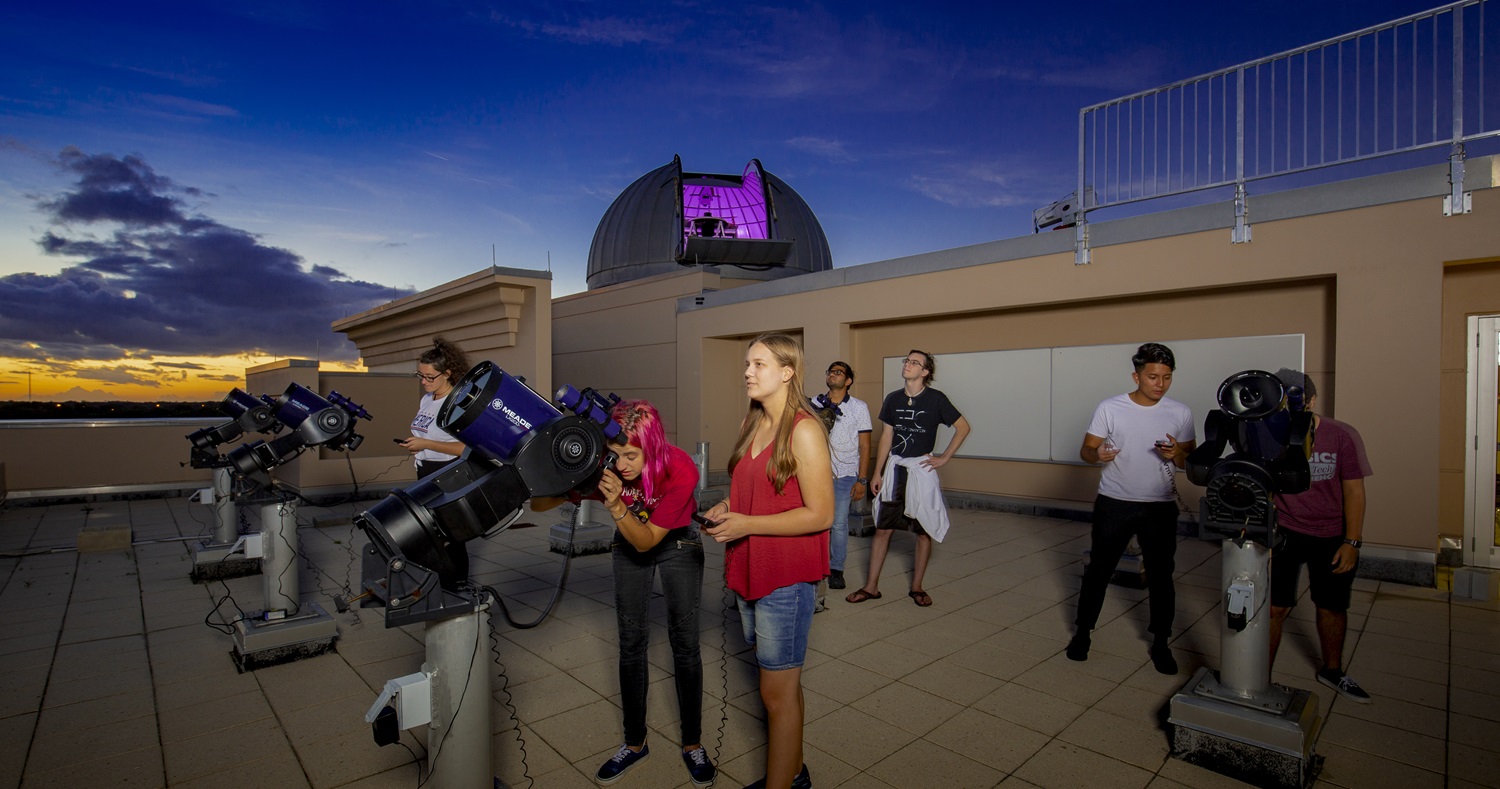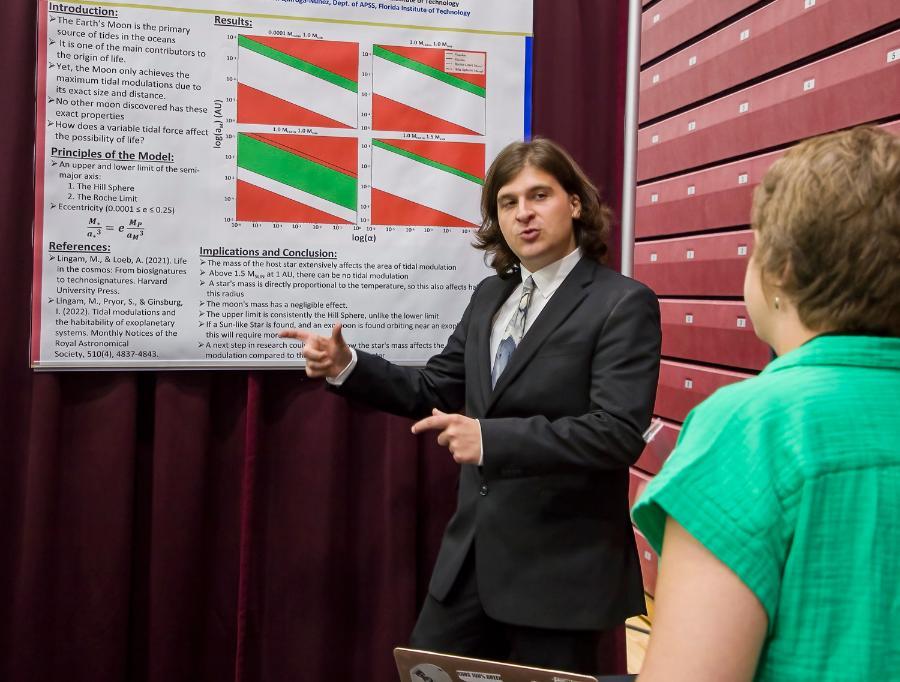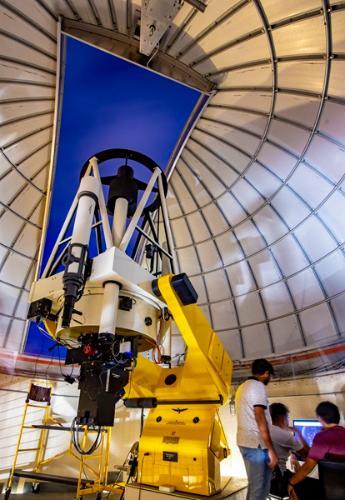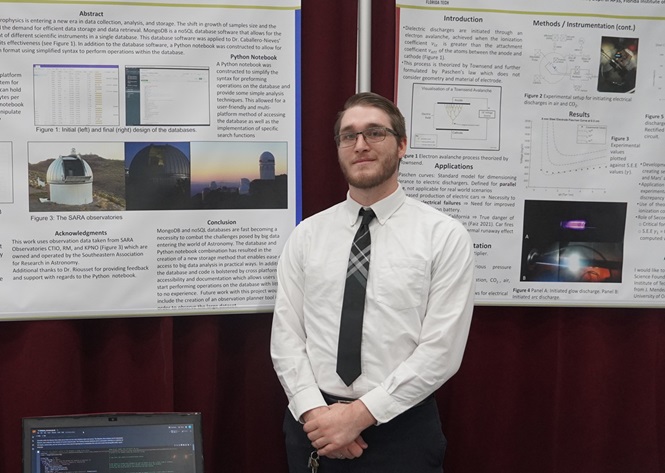Planetary Science Capstone Research
Research plays a vital role in planetary science, and senior capstone projects are a key component of every degree at Florida Tech. You'll present your capstone at the Northrop Grumman Engineering and Science Student Design Showcase, offering a chance to share your work with peers, faculty, industry leaders and the community.
Students select topics of interest for their projects, such as:
- Detecting exoplanets
- Improving exoplanet imaging
- Modeling the effects of an extra planet on Earth's habitability
- Simulating parameters for terraforming Mars
- Analyzing the impact of exomoon size on exoplanets
These research experiences provide real-world skills, build your professional network and open doors for advanced study and career opportunities.


 Give to Florida Tech
Give to Florida Tech 



